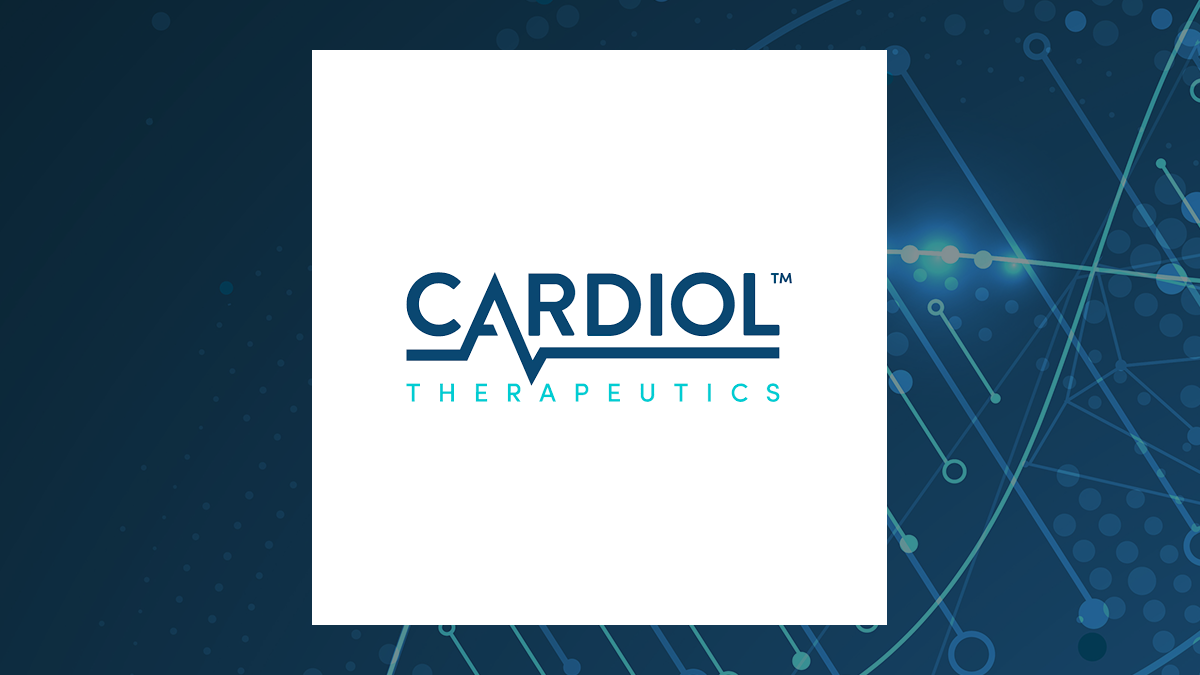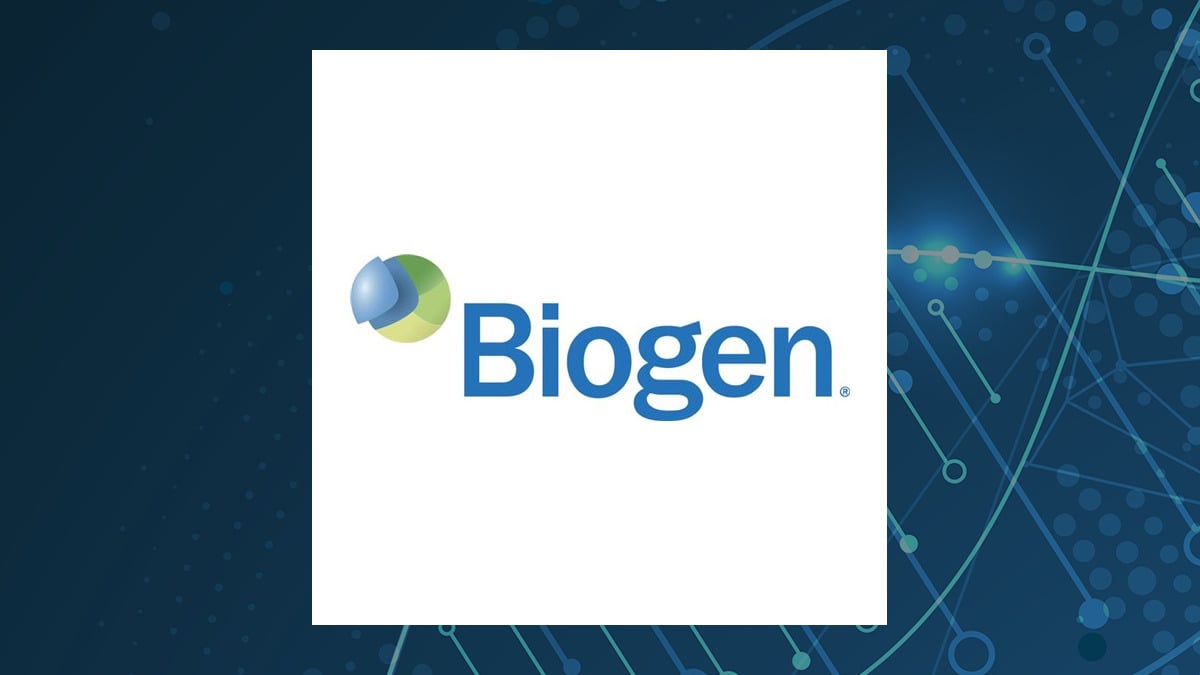Cardiol Therapeutics (NASDAQ:CRDL – Get Free Report) and Biogen (NASDAQ:BIIB – Get Free Report) are both medical companies, but which is the superior business? We will contrast the two businesses based on the strength of their institutional ownership, analyst recommendations, earnings, valuation, profitability, risk and dividends.
Analyst Ratings
This is a breakdown of current ratings and price targets for Cardiol Therapeutics and Biogen, as provided by MarketBeat.com.
| Sell Ratings | Hold Ratings | Buy Ratings | Strong Buy Ratings | Rating Score | |
| Cardiol Therapeutics | 0 | 0 | 5 | 2 | 3.29 |
| Biogen | 0 | 17 | 12 | 0 | 2.41 |
Cardiol Therapeutics currently has a consensus price target of $8.40, suggesting a potential upside of 546.15%. Biogen has a consensus price target of $221.65, suggesting a potential upside of 66.12%. Given Cardiol Therapeutics’ stronger consensus rating and higher possible upside, equities research analysts plainly believe Cardiol Therapeutics is more favorable than Biogen.
Profitability
| Net Margins | Return on Equity | Return on Assets | |
| Cardiol Therapeutics | N/A | -194.40% | -129.07% |
| Biogen | 16.81% | 14.98% | 8.59% |
Volatility and Risk
Cardiol Therapeutics has a beta of 0.91, indicating that its share price is 9% less volatile than the S&P 500. Comparatively, Biogen has a beta of -0.08, indicating that its share price is 108% less volatile than the S&P 500.
Earnings and Valuation
This table compares Cardiol Therapeutics and Biogen”s gross revenue, earnings per share and valuation.
| Gross Revenue | Price/Sales Ratio | Net Income | Earnings Per Share | Price/Earnings Ratio | |
| Cardiol Therapeutics | N/A | N/A | -$20.84 million | ($0.39) | -3.33 |
| Biogen | $9.84 billion | 1.98 | $1.16 billion | $11.07 | 12.05 |
Biogen has higher revenue and earnings than Cardiol Therapeutics. Cardiol Therapeutics is trading at a lower price-to-earnings ratio than Biogen, indicating that it is currently the more affordable of the two stocks.
Insider and Institutional Ownership
12.5% of Cardiol Therapeutics shares are held by institutional investors. Comparatively, 87.9% of Biogen shares are held by institutional investors. 5.3% of Cardiol Therapeutics shares are held by company insiders. Comparatively, 0.2% of Biogen shares are held by company insiders. Strong institutional ownership is an indication that endowments, hedge funds and large money managers believe a stock is poised for long-term growth.
Summary
Biogen beats Cardiol Therapeutics on 9 of the 14 factors compared between the two stocks.
About Cardiol Therapeutics
 Cardiol Therapeutics Inc., a clinical-stage life sciences company, focuses on the research and development of anti-fibrotic and anti-inflammatory therapies for the treatment of heart diseases. Its lead product CardiolRx, which is in Phase II multi-national, randomized, double-blind, and placebo-controlled study to evaluate the efficacy and safety of CardiolRx in acute myocarditis, as well as for the treatment of recurrent pericarditis. The company is also developing CRD-38 injection for subcutaneous administration that is in preclinical development for the treatment of heart failure. It has a license agreement with Meros. The company was incorporated in 2017 and is headquartered in Oakville, Canada.
Cardiol Therapeutics Inc., a clinical-stage life sciences company, focuses on the research and development of anti-fibrotic and anti-inflammatory therapies for the treatment of heart diseases. Its lead product CardiolRx, which is in Phase II multi-national, randomized, double-blind, and placebo-controlled study to evaluate the efficacy and safety of CardiolRx in acute myocarditis, as well as for the treatment of recurrent pericarditis. The company is also developing CRD-38 injection for subcutaneous administration that is in preclinical development for the treatment of heart failure. It has a license agreement with Meros. The company was incorporated in 2017 and is headquartered in Oakville, Canada.
About Biogen
 Biogen Inc. discovers, develops, manufactures, and delivers therapies for treating neurological and neurodegenerative diseases in the United States, Europe, Germany, Asia, and internationally. The company provides TECFIDERA, VUMERITY, AVONEX, PLEGRIDY, TYSABRI, and FAMPYRA for multiple sclerosis (MS); SPINRAZA for spinal muscular atrophy; ADUHELM to treat Alzheimer’s disease; FUMADERM to treat plaque psoriasis; BENEPALI, an etanercept biosimilar referencing ENBREL; IMRALDI, an adalimumab biosimilar referencing HUMIRA; FLIXABI, an infliximab biosimilar referencing REMICADE; and BYOOVIZ, a ranibizumab biosimilar referencing LUCENTIS. It offers RITUXAN for treating non-Hodgkin’s lymphoma, chronic lymphocytic leukemia (CLL), rheumatoid arthritis, two forms of ANCA-associated vasculitis, and pemphigus vulgaris; RITUXAN HYCELA for non-Hodgkin’s lymphoma and CLL; GAZYVA to treat CLL and follicular lymphoma; OCREVUS for relapsing MS and primary progressive MS; LUNSUMIO to treat relapsed or refractory follicular lymphoma; glofitamab for non-Hodgkin’s lymphoma; and other anti-CD20 therapies. In addition, the company is developing various products for the treatment of MS, Alzheimer’s disease and dementia, neuromuscular disorders, Parkinson’s disease and movement disorders, neuropsychiatry, genetic neurodevelopmental disorders, and biosimilars, which are under various stages of development. It has collaboration and license agreements with Acorda Therapeutics, Inc.; Alkermes Pharma Ireland Limited; Denali Therapeutics Inc.; Eisai Co., Ltd.; Genentech, Inc.; Neurimmune SubOne AG; Ionis Pharmaceuticals, Inc.; Samsung Bioepis Co., Ltd.; Sangamo Therapeutics, Inc.; and Sage Therapeutics, Inc., as well as collaboration with Fujirebio to potentially identify and develop blood-based biomarkers for tau pathology in the brain. The company was founded in 1978 and is headquartered in Cambridge, Massachusetts.
Biogen Inc. discovers, develops, manufactures, and delivers therapies for treating neurological and neurodegenerative diseases in the United States, Europe, Germany, Asia, and internationally. The company provides TECFIDERA, VUMERITY, AVONEX, PLEGRIDY, TYSABRI, and FAMPYRA for multiple sclerosis (MS); SPINRAZA for spinal muscular atrophy; ADUHELM to treat Alzheimer’s disease; FUMADERM to treat plaque psoriasis; BENEPALI, an etanercept biosimilar referencing ENBREL; IMRALDI, an adalimumab biosimilar referencing HUMIRA; FLIXABI, an infliximab biosimilar referencing REMICADE; and BYOOVIZ, a ranibizumab biosimilar referencing LUCENTIS. It offers RITUXAN for treating non-Hodgkin’s lymphoma, chronic lymphocytic leukemia (CLL), rheumatoid arthritis, two forms of ANCA-associated vasculitis, and pemphigus vulgaris; RITUXAN HYCELA for non-Hodgkin’s lymphoma and CLL; GAZYVA to treat CLL and follicular lymphoma; OCREVUS for relapsing MS and primary progressive MS; LUNSUMIO to treat relapsed or refractory follicular lymphoma; glofitamab for non-Hodgkin’s lymphoma; and other anti-CD20 therapies. In addition, the company is developing various products for the treatment of MS, Alzheimer’s disease and dementia, neuromuscular disorders, Parkinson’s disease and movement disorders, neuropsychiatry, genetic neurodevelopmental disorders, and biosimilars, which are under various stages of development. It has collaboration and license agreements with Acorda Therapeutics, Inc.; Alkermes Pharma Ireland Limited; Denali Therapeutics Inc.; Eisai Co., Ltd.; Genentech, Inc.; Neurimmune SubOne AG; Ionis Pharmaceuticals, Inc.; Samsung Bioepis Co., Ltd.; Sangamo Therapeutics, Inc.; and Sage Therapeutics, Inc., as well as collaboration with Fujirebio to potentially identify and develop blood-based biomarkers for tau pathology in the brain. The company was founded in 1978 and is headquartered in Cambridge, Massachusetts.
Receive News & Ratings for Cardiol Therapeutics Daily - Enter your email address below to receive a concise daily summary of the latest news and analysts' ratings for Cardiol Therapeutics and related companies with MarketBeat.com's FREE daily email newsletter.
